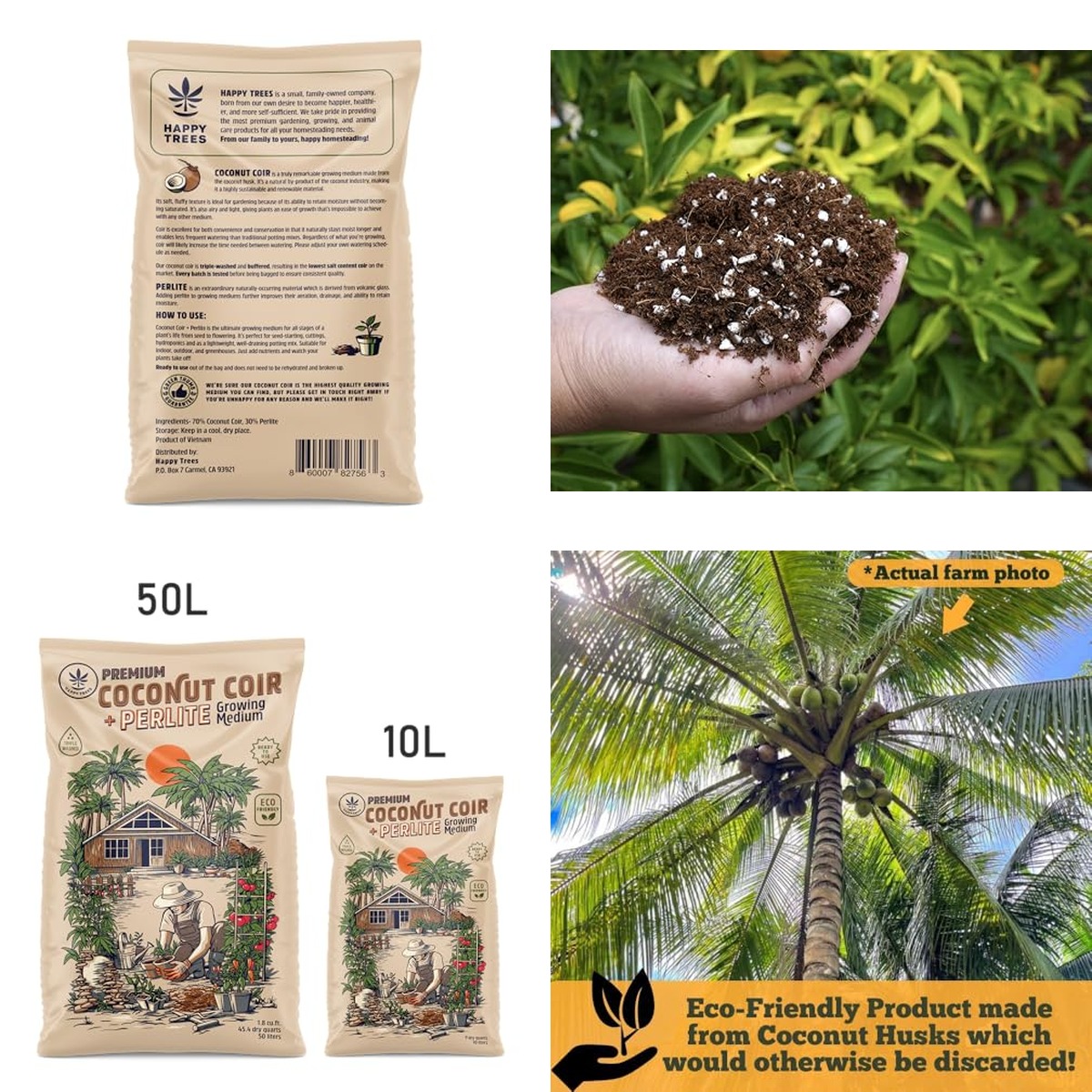As you plan your spring planting or refresh your container gardens, you might be noticing a shift in how we talk about gardening essentials. The traditional go-to for potting mixes has long been peat-based, but many of us are now seeking more sustainable choices.
Fortunately, a wave of innovative and eco-friendly potting mix options have emerged, offering fantastic alternatives that nourish your plants and our planet. From the excellent moisture retention of coconut coir to the beneficial structure of wood fiber, there’s a whole world of sustainable soil alternatives for planting ready to support your green thumb.
Embracing these forward-thinking soil solutions means you can cultivate vibrant blooms and bountiful harvests with a clear conscience. We’ve gathered some of the best peat-free options to help you grow with confidence.
Key Takeaways
- Explore various peat-free soil alternatives like coco coir blocks and specialized mixes for diverse gardening needs.
- Coco coir products offer a versatile, sustainable base for potting mixes, raised beds, and seed starting.
- Carnivorous plant soil provides an aerated, well-draining blend specifically formulated for unique plant requirements.
- Organic potting soils and seed starter mixes enrich gardens, promoting healthy blooms and tender sprouts naturally.
- Moisture-retentive mixes are ideal for thirsty plants, while peat-free options support eco-conscious gardening practices.
- Some specialized soils may require additional amendments to meet the specific nutrient demands of certain plant species.
| Image | 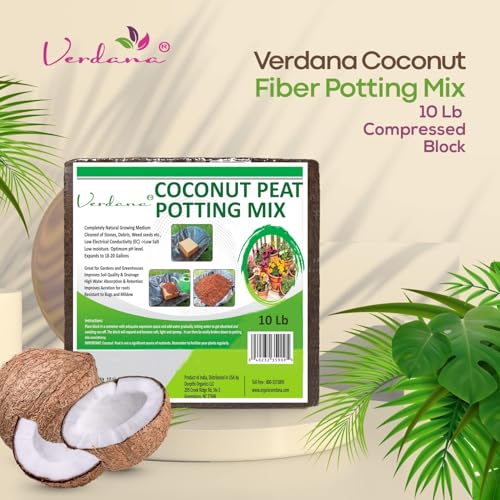 | 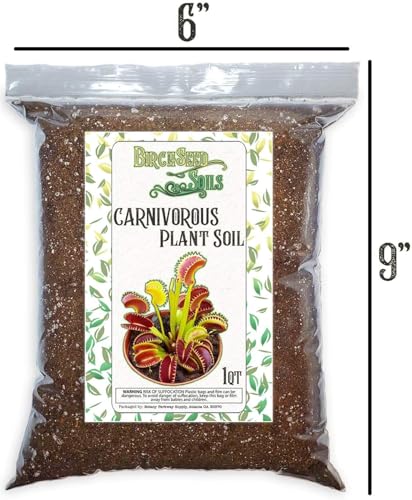 | 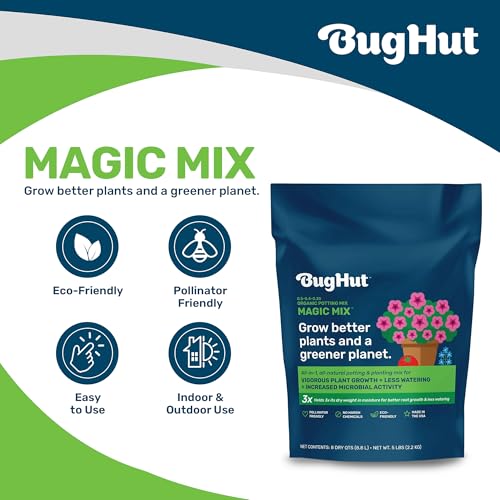 |
|---|---|---|---|
| Product | Verdana Coco Coir Potting Soil Brick – 10 Lb Compressed Coconut Fiber Block Expands to 18 Gallons – Potting Mix, Raised Bed Soil & Peat Moss Alternative for Organic Gardening & Seed Starting Verdana | Carnivorous Plant Soil Mix – 1 Quart Bag – Premium Blend of Perlite & Peat Moss – Ideal for Venus Flytraps, Pitcher Plants, Sundews & Other Carnivorous Species – Ready to Use, Natural, Resealable Bag Generic | BugHut Magic Mix Peat Free Organic Potting Soil for Indoor Plants and Outdoor – Nutrient-Rich Garden Soil for Vegetables, Fruits, Herbs, and Flowers – Potting Mix Moisture Retaining, 5 lb Bag BUGHUT |
| Link | Check Price on Amazon | Check Price on Amazon | Check Price on Amazon |
| Material | Coconut Fiber | Perlite & Peat Moss | Dairy waste fiber |
| Size/Capacity | 10 Lb Brick (Expands to 18 Gallons) | 1 Quart Bag | 5 lb Bag |
| Key Features |
|
|
|
| Depth/Height | |||
| Best For | Organic gardening, seed starting, raised beds, houseplants | Venus flytraps, pitcher plants, sundews, and other carnivorous species | Indoor and outdoor plants, vegetables, fruits, herbs, and flowers |
1. Coco Coir Block for Lush Gardens

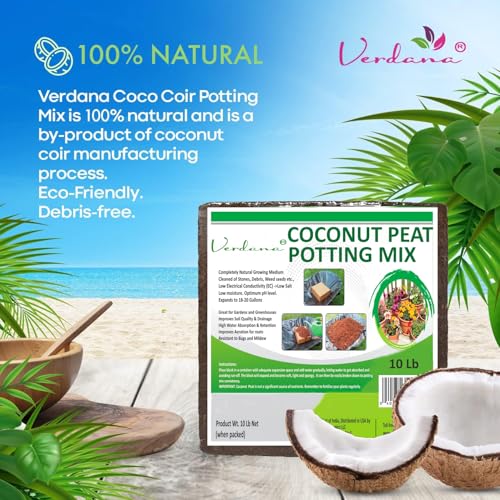
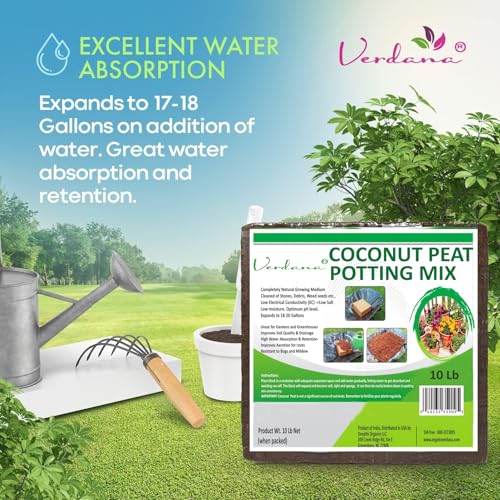
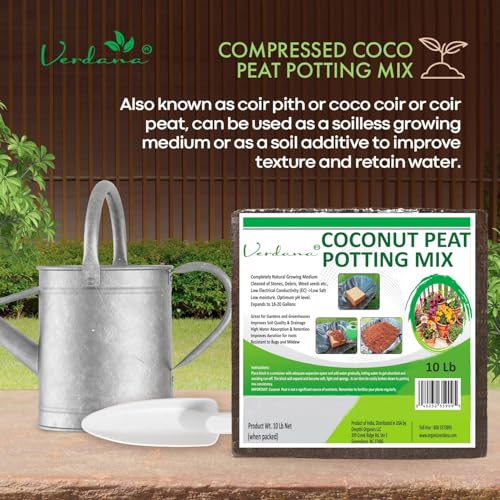
This compressed block transforms into a foundation for truly vibrant growth near your garden path. Its airy texture promises a gentle embrace for roots seeking a healthy home.
Embrace a charming cottage garden aesthetic by strategically layering this soil amendment around the base of rambling roses or cascading perennials. Its natural composition creates a visually appealing, organic bed that invites a sense of lush abundance and visual depth.
Pros
This product is exceptionally versatile, serving as an excellent medium for potting mixes, raised garden beds, and as a sustainable alternative to peat moss in organic gardening efforts. It effectively aids in seed starting and promotes healthy plant development.
Cons
Its compressed nature requires expansion with water before use, adding an initial preparation step. While beneficial for many plants, it may not offer the specific nutrient profile some specialized species demand without further amendment.
Best for: Boosting soil health and creating ideal conditions for a wide variety of plants.
Get more details and current pricing on Amazon.
2. Carnivorous Plant Soil Mix

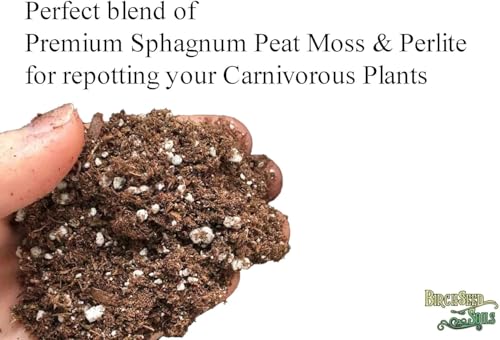
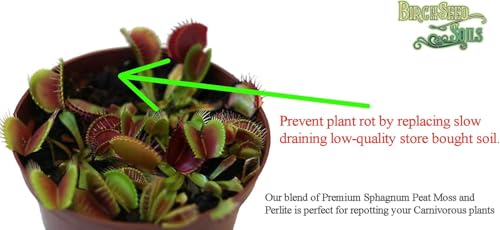
This refined blend offers a porous foundation along your garden path. Its earthy aroma promises a thriving environment for specialized flora.
Embrace a captivating, almost mysterious, bog garden aesthetic by carefully layering this component around the base of delicate sundews or elegant pitcher plants. The natural, open texture creates a visually intriguing, damp microclimate that enhances the unique allure of these fascinating plants, evoking a sense of wild, untouched beauty.
Pros
This product is expertly formulated for the specific needs of carnivorous plants, providing the ideal aeration and drainage they require. Its premium blend supports vigorous growth and health for a variety of these fascinating species.
Cons
While perfect for its intended use, this mix is not suited for general garden plants due to its unique composition. It may require specific watering techniques to maintain the optimal moisture balance.
Best for: Cultivating a thriving habitat for carnivorous plants.
View this product’s details and availability on Amazon.
3. Organic Potting Soil for Blooming Gardens

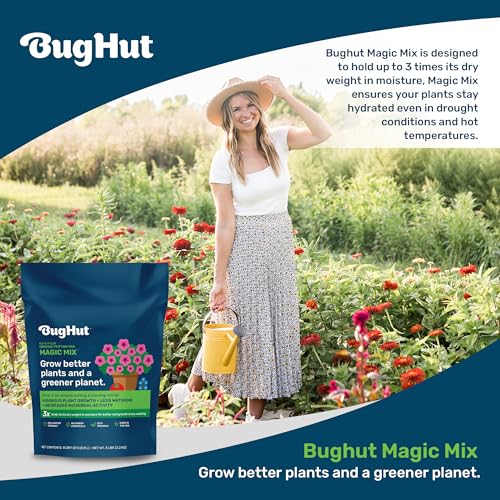
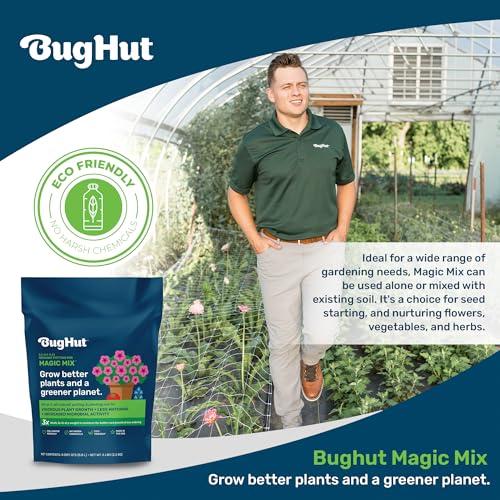
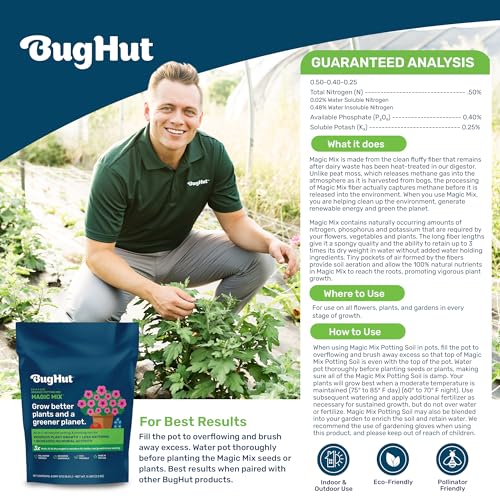
This nutrient-rich blend provides a fertile canvas along your garden path. Its earthy aroma promises a flourishing environment for abundant blooms.
Embrace a delightful cottage garden aesthetic by gently layering this potting soil around the base of vibrant flowering shrubs or trailing groundcovers. The natural composition creates a visually appealing, organic foundation that invites a sense of wild, untamed beauty and encourages a deeply satisfying visual richness.
Pros
This product offers remarkable versatility, serving beautifully as a potting mix for containers, a vital component in raised garden beds, and a sustainable choice for enriching garden soil. It effectively supports seed germination and promotes robust plant development for a wide array of species.
Cons
While excellent for general gardening, its specific nutrient profile might require supplemental feeding for highly demanding or specialized plants. Its fine texture may also require careful watering to prevent excessive compaction in very wet conditions.
Best for: Cultivating lush and healthy flower gardens, vegetable patches, and herb collections.
Get more details and current pricing on Amazon.
4. Organic Seed Starter Soil
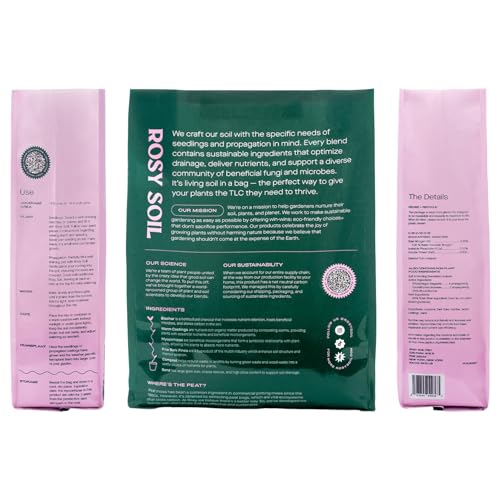
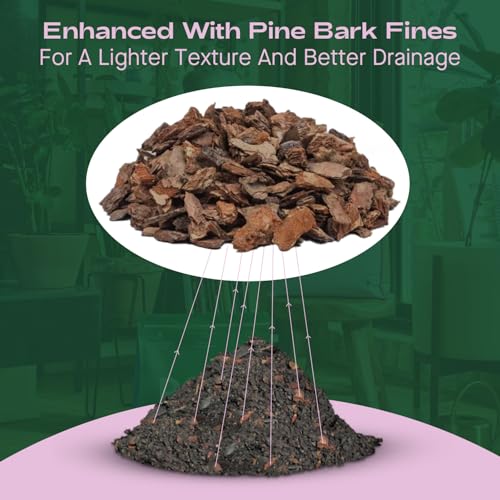
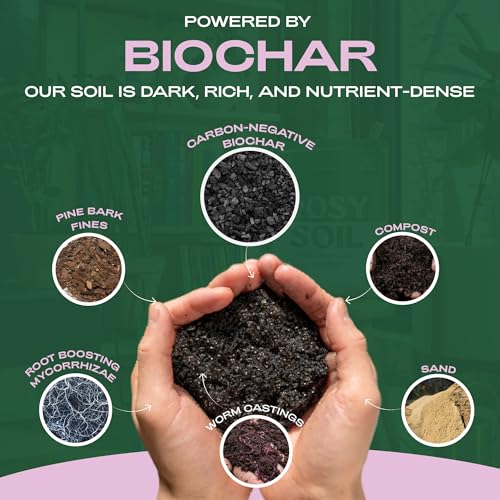
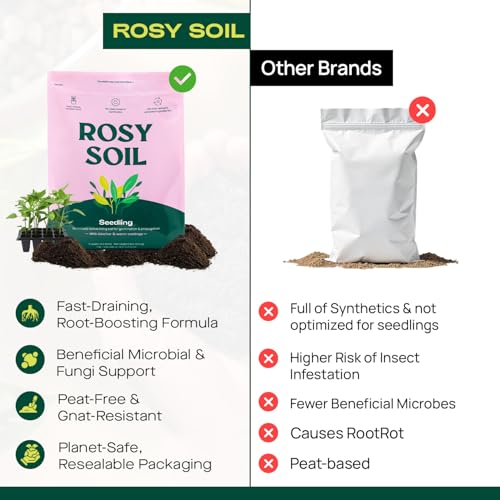
This nourishing blend creates a rich foundation along your garden path. Its hint of earthy sweetness promises tender beginnings for precious sprouts.
Embrace a charming, informal cottage garden aesthetic by gently layering this potting soil around the base of emerging seedlings or delicate microgreens. The natural composition creates a visually appealing, organic bed that invites a sense of nurturing abundance and quiet anticipation, enhancing the overall visual warmth of your planting area.
Pros
This product is ideal for starting seeds, cuttings, and growing microgreens, providing an organic and peat-free medium enriched with beneficial worm castings and root-boosting biochar. Its formulation is less prone to gnats, promoting a cleaner germination and propagation environment.
Cons
While excellent for starting delicate plants, its specific nutrient profile may require supplemental feeding for more mature or demanding garden plants. Its fine texture might also necessitate careful watering to prevent compaction in very damp conditions.
Best for: Nurturing delicate seedlings, cuttings, and microgreens from their earliest stages.
Get more details and current pricing on Amazon.
5. Peat-Free Potting Mix Blooms
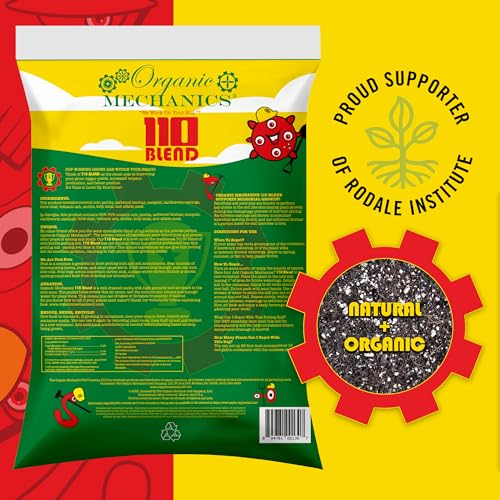
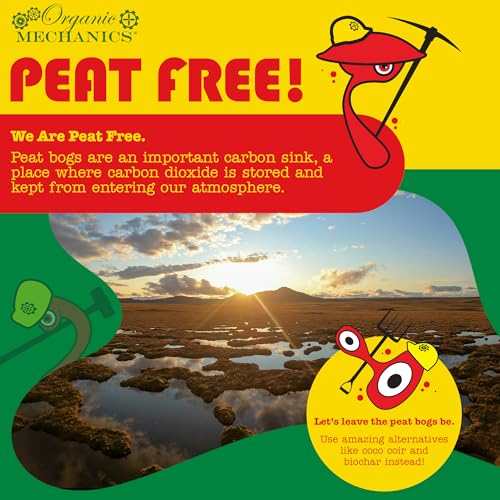
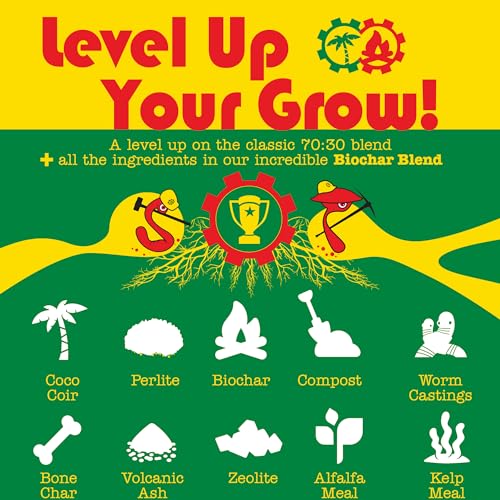
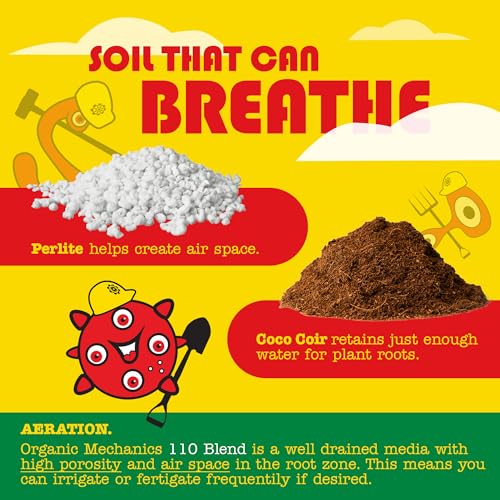
This nourishing blend creates a rich foundation along your garden path. Embrace a charming cottage garden aesthetic by gently layering this potting soil around the base of vibrant flowering shrubs, softening the edges with creeping thyme for a touch of wild abundance.
Its organic composition invites a sense of nurturing abundance and quiet anticipation, enhancing the overall visual warmth of your planting area and promising tender beginnings for precious sprouts. The earthy aroma promises a flourishing environment for abundant blooms, transforming your space into a haven of gentle beauty.
Pros
This product is ideal for starting seeds, cuttings, and growing microgreens, providing an organic and peat-free medium enriched with beneficial worm castings and root-boosting biochar. Its formulation is less prone to gnats, promoting a cleaner germination and propagation environment.
Cons
While excellent for starting delicate plants, its specific nutrient profile may require supplemental feeding for more mature or demanding garden plants. Its fine texture might also necessitate careful watering to prevent compaction in very damp conditions.
Best for: Nurturing delicate seedlings, cuttings, and microgreens from their earliest stages.
Get more details and current pricing on Amazon.
6. Coco Coir Brick for Seedlings
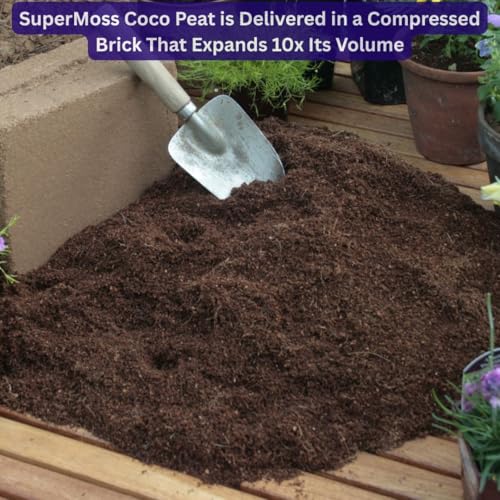
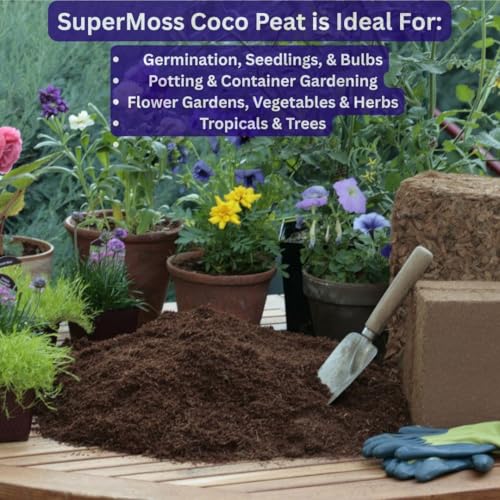
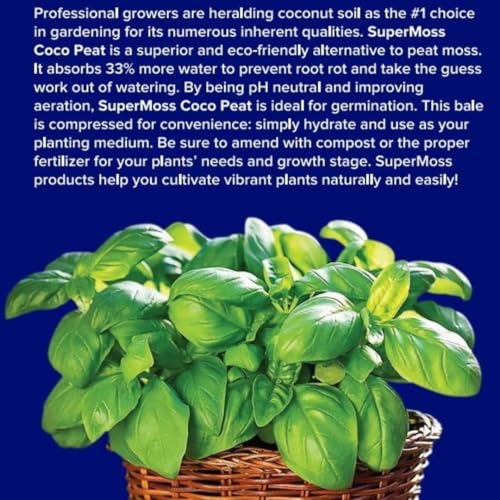
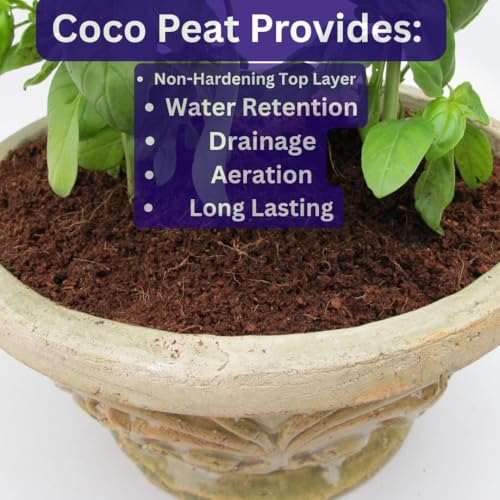
This compressed block offers a clean canvas along your garden border.
Embrace a natural, unfussy farmhouse charm by positioning this component near a weathered wooden fence or bordering a bed of sturdy sunflowers. Its light, airy texture creates an inviting foundation that promises healthy growth and a touch of organic simplicity, evoking a sense of grounded abundance and quiet contentment.
Pros
This product is exceptionally versatile, serving as an excellent medium for potting mixes, raised garden beds, and as a sustainable alternative to peat moss in organic gardening efforts. It effectively aids in seed starting and promotes healthy plant development.
Cons
Its compressed nature requires expansion with water before use, adding an initial preparation step. While beneficial for many plants, it may not offer the specific nutrient profile some specialized species demand without further amendment.
Best for: Boosting soil health and creating ideal conditions for a wide variety of plants.
Get more details and current pricing on Amazon.
7. Magic Mix for Vibrant Plants
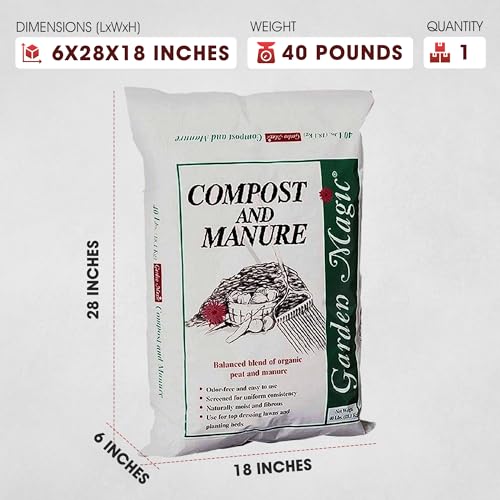
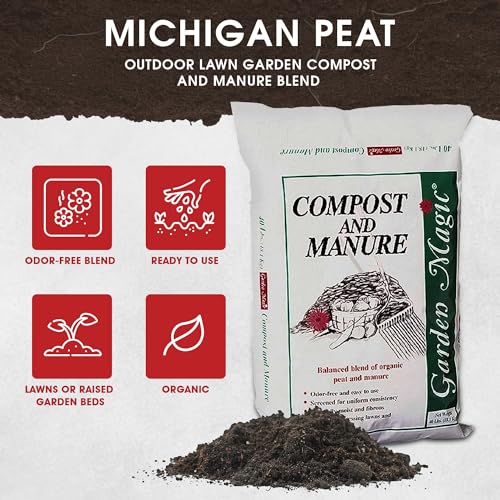
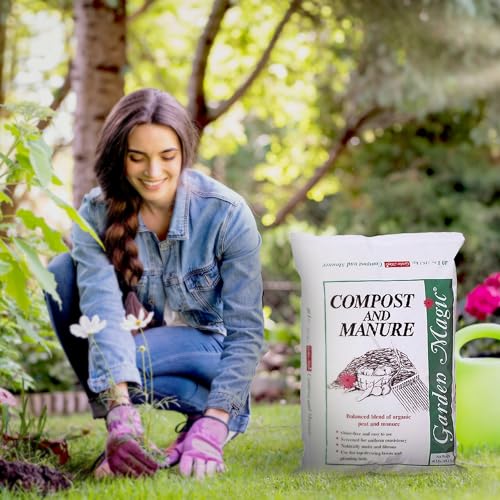
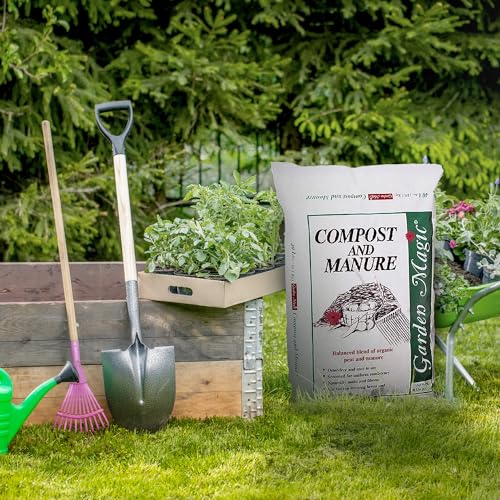
This revitalizing blend creates a fertile foundation along your garden path. Its rich, earthy aroma promises a nurturing environment for robust growth.
Embrace a lush cottage garden aesthetic by layering this component around the base of vibrant hydrangeas or soft ornamental grasses. The natural composition cultivates an inviting, organic bed that enhances the sense of bountiful beauty and visual depth, making your outdoor space feel deeply grounded and serene.
Pros
This product is exceptionally versatile, serving as an excellent medium for potting mixes, raised garden beds, and as a sustainable alternative to peat moss in organic gardening efforts. It effectively aids in seed starting and promotes healthy plant development for a wide array of plants.
Cons
Its compressed nature requires expansion with water before use, adding an initial preparation step. While beneficial for many plants, it may not offer the specific nutrient profile some specialized species demand without further amendment.
Best for: Boosting soil health and creating ideal conditions for a wide variety of plants.
Get more details and current pricing on Amazon.
8. Organic Soil for Vibrant Gardens




This nutrient-rich blend creates a fertile foundation along your garden path. Embrace a lush cottage garden aesthetic by gently layering this organic planting mix around the base of rambling roses, softening the edges with a scattering of pea stone for a touch of wild abundance.
Its earthy aroma promises a flourishing environment for abundant blooms, transforming your space into a haven of gentle beauty. The natural composition cultivates an inviting, organic bed that enhances the sense of bountiful charm and visual depth, making your outdoor space feel deeply rooted and serene.
Pros
This product is exceptionally versatile, serving as an excellent medium for potting mixes, raised garden beds, and as a sustainable alternative to peat moss in organic gardening efforts. It effectively aids in seed starting and promotes healthy plant development for a wide array of plants.
Cons
Its compressed nature requires expansion with water before use, adding an initial preparation step. While beneficial for many plants, it may not offer the specific nutrient profile some specialized species demand without further amendment.
Best for: Boosting soil health and creating ideal conditions for a wide variety of plants.
Get more details and current pricing on Amazon.
9. Moisture-Rich Potting Soil Mix
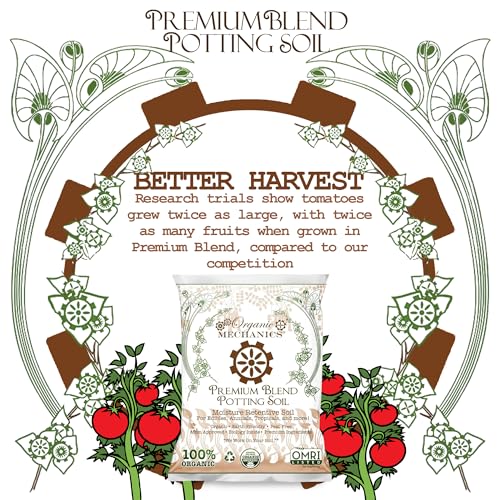
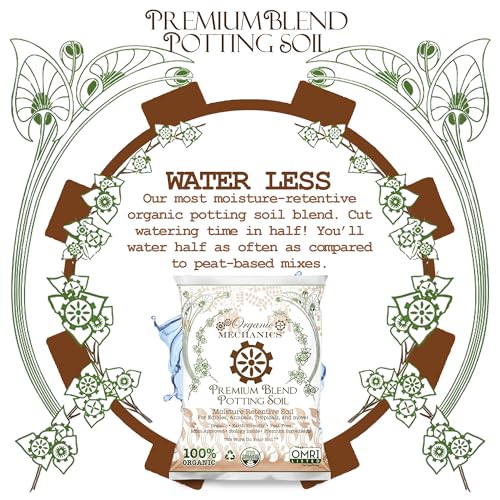
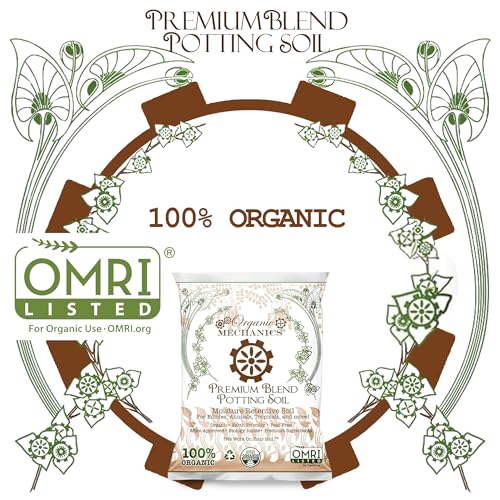
This premium potting soil blend provides a receptive foundation along your garden path. Embrace a lush, moisture-loving aesthetic by layering this component around thirsty ferns or beneath vibrant hostas, creating a visually rich, verdant carpet.
Its inherent moisture-retentive qualities will foster a thriving environment, enhancing the sense of abundant growth and botanical splendor. This piece promises to transform your planting areas into vibrant, verdant sanctuaries, brimming with life and a gentle, soothing presence.
Pros
This soil mix excels at retaining moisture, making it ideal for plants that appreciate consistent hydration. Its peat-free composition, enriched with worm castings and perlite, provides excellent aeration and essential nutrients for robust plant development, supporting a variety of houseplants, annuals, vegetables, and tropical varieties.
Cons
While excellent for moisture-loving plants, it may require supplemental drainage considerations for species prone to root rot. Its rich nutrient profile might be too intense for very delicate seedlings without careful monitoring or initial dilution.
Best for: Cultivating moisture-loving plants and enhancing soil hydration.
Get more details and current pricing on Amazon.
10. Loose Coir for Happy Plants
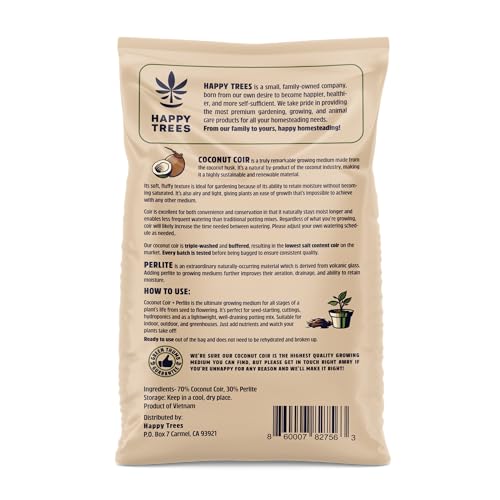
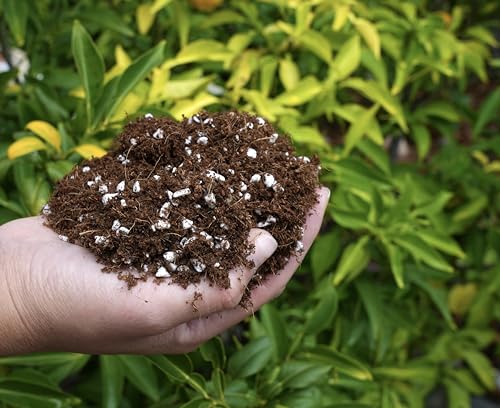
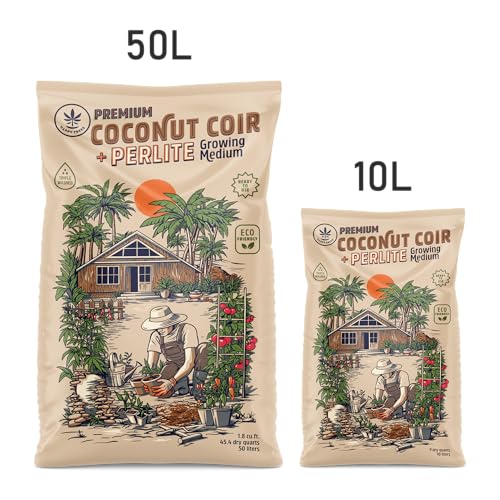
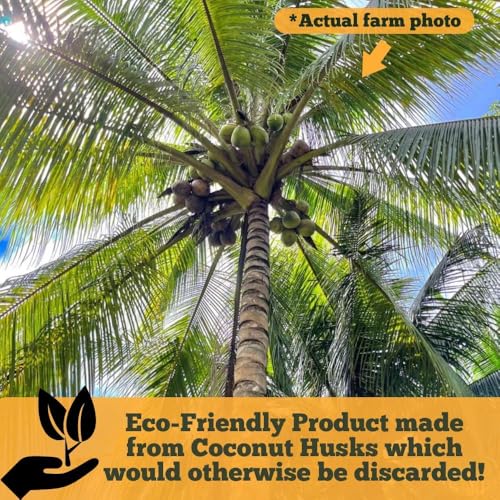
This loose coir provides a welcoming foundation along your garden border.
Embrace a breezy, natural cottage garden feel by layering this component around the base of cheerful hydrangeas or softening the edges with a scattering of river stones. Its airy texture promises a gentle embrace for roots seeking a healthy home, enhancing a sense of abundant, untamed beauty.
Pros
This product is exceptionally versatile, serving as an excellent medium for potting mixes, raised garden beds, and as a sustainable alternative to peat moss in organic gardening efforts. It effectively aids in seed starting and promotes healthy plant development.
Cons
Its compressed nature requires expansion with water before use, adding an initial preparation step. While beneficial for many plants, it may not offer the specific nutrient profile some specialized species demand without further amendment.
Best for: Boosting soil health and creating ideal conditions for a wide variety of plants.
Get more details and current pricing on Amazon.
This post contains affiliate links. Purchases may earn me a commission at no extra cost to you.
FAQs
Q: What are peat-free soil alternatives?
Peat-free soil alternatives are growing mediums that do not contain peat moss, offering a more sustainable option for gardeners. They are typically made from composted bark, coir, wood fibre, or other organic materials.
Q: Why are peat-free soil alternatives important for eco-friendly gardening?
Using peat-free alternatives protects peatlands, which are vital carbon sinks and unique habitats. This choice supports biodiversity and reduces the environmental impact associated with peat extraction.
Q: How do peat-free soil alternatives compare in drainage and aeration?
Many peat-free soil alternatives offer excellent drainage and aeration due to their coarser texture, preventing waterlogging and promoting healthy root growth. This is often achieved through materials like wood chips or bark.
Q: Are peat-free soil alternatives suitable for all types of plants?
Yes, peat-free soil alternatives are generally suitable for a wide range of plants, including vegetables, flowers, and shrubs. Specific blends might be formulated for acid-loving plants or seedlings.
Q: What is the typical lifespan of peat-free soil alternatives?
The lifespan of peat-free soil alternatives can vary, but they generally decompose slower than peat, providing soil structure for 1-3 years. Adding compost annually can replenish nutrients and improve soil over time.
Q: How much peat-free soil do I need for my garden beds?
The amount of peat-free soil needed depends on the size and depth of your garden beds. For raised beds, a depth of 6-12 inches is common, so measure your bed dimensions and calculate the volume required.
Q: How should I store unused peat-free soil alternatives?
To maintain quality, store unused peat-free soil alternatives in a cool, dry place, ideally in their original packaging or a sealed container. This prevents them from drying out or becoming waterlogged.
Top 10 Peat-Free Soil Alternatives
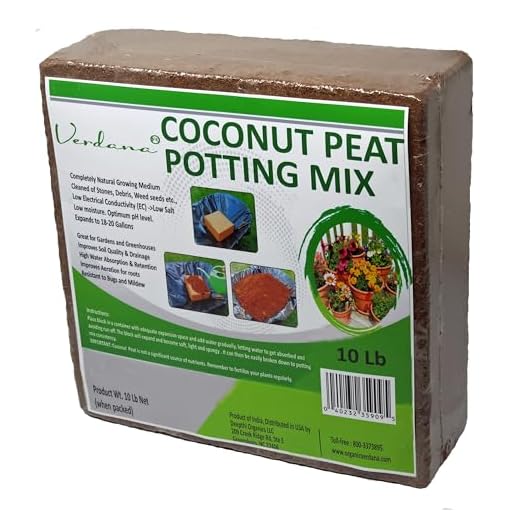
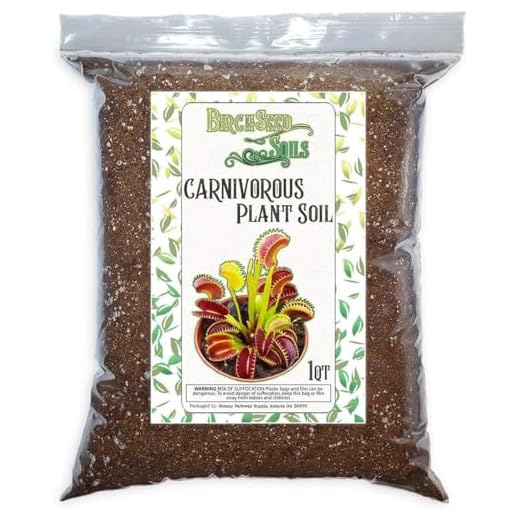
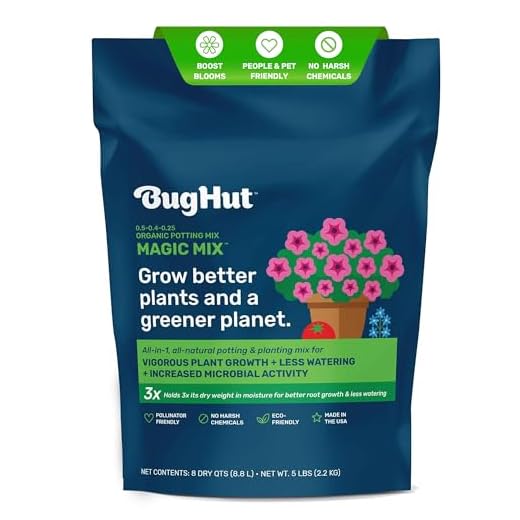
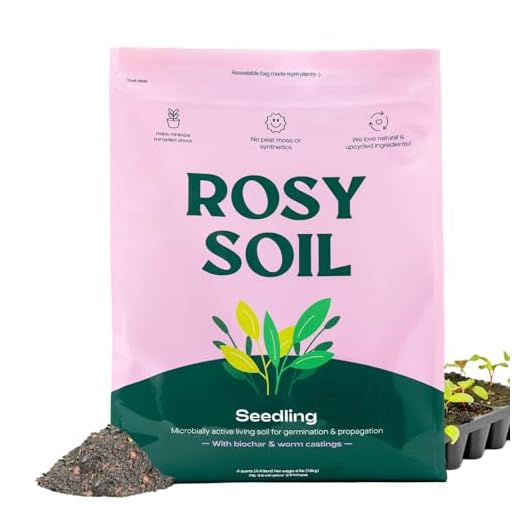
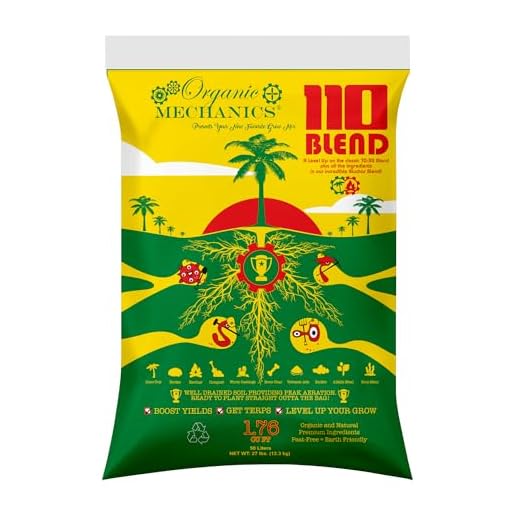
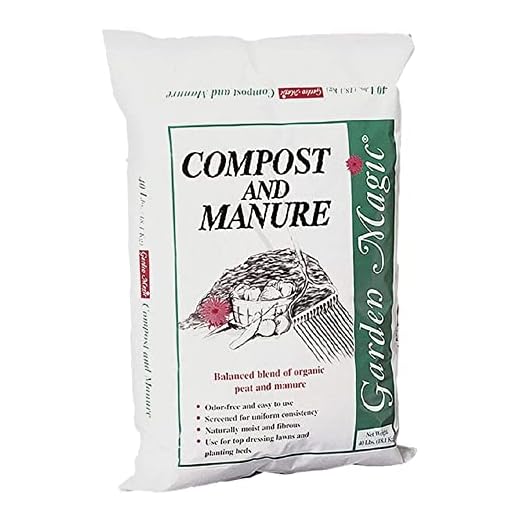
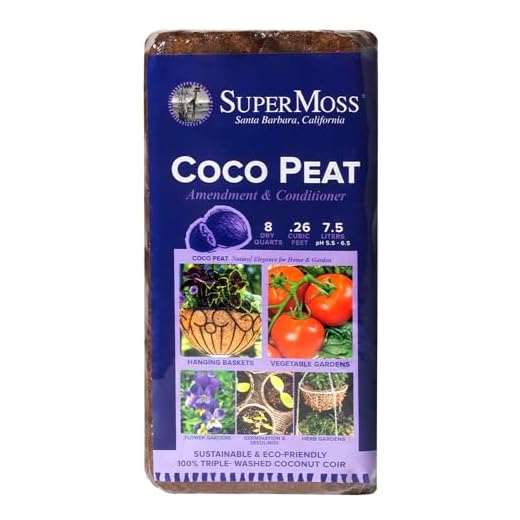
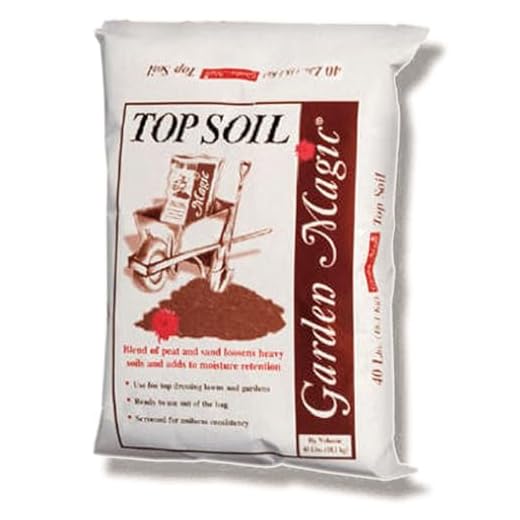
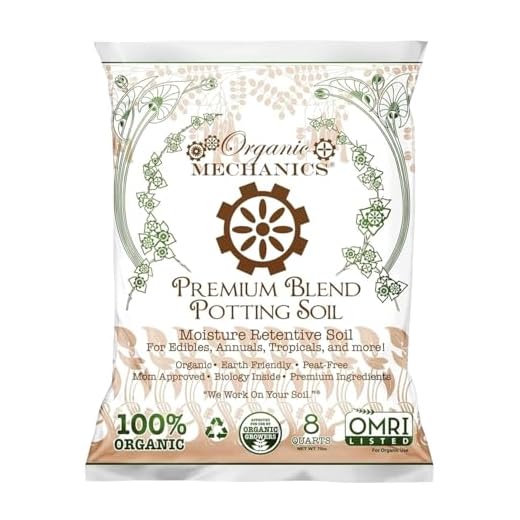
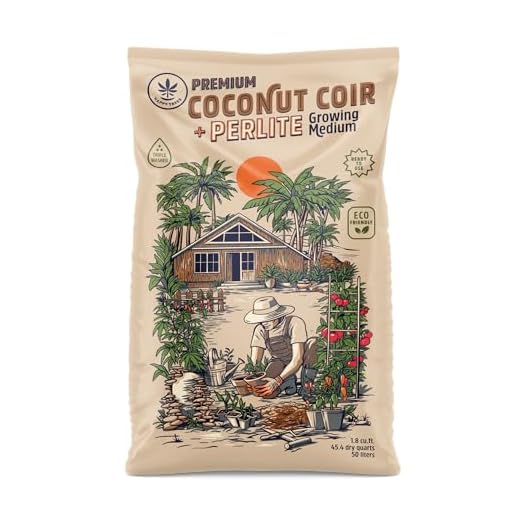
Conclusion
Selecting the right soil or soil amendment is crucial for plant health and garden success. Different mixes cater to specific needs, from seed starting to moisture retention and specialized plants like carnivorous varieties. The presented options offer versatile solutions for enhancing soil structure, promoting root development, and fostering vibrant growth across a range of gardening applications.
Recommended Products
- Coco Coir Block for Lush Gardens – This compressed block expands to create an airy foundation, ideal for general potting mixes and raised beds.
- Carnivorous Plant Soil Mix – Expertly formulated for carnivorous plants, this blend ensures optimal aeration and drainage for these specialized species.
- Organic Potting Soil for Blooming Gardens – A nutrient-rich blend perfect for containers, raised beds, and general soil enrichment, promoting robust plant development.

With over 15 years of hands-on experience in controlled-environment agriculture, Angelina leads our lab audits. Her focus is on bridging the gap between high-end agricultural tech and the home grower, ensuring every recommendation is backed by real-world data and yield performance.

